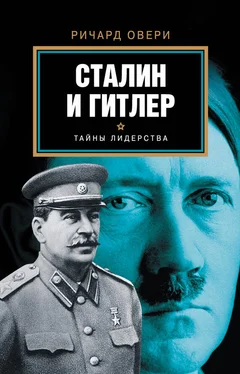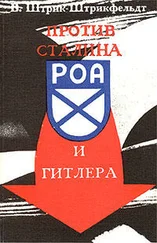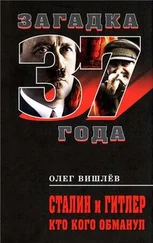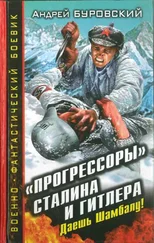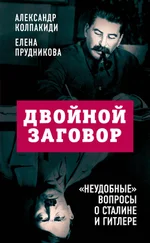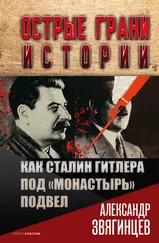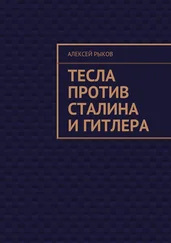Getty, J. A. ‘Samokritika Rituals in the Stalinist Central Committee, 1933–38’, Russian Review, 58 (1999), pp. 49–70.
Getty, J. A. and Manning, R. (eds) Stalinist Terror: New Perspectives (Cambridge, 1993).
Getty, J. A., Rittersporn, G. T. and Zemskov, V. N. ‘Victims of the Soviet Penal System in the Pre-War Years: A First Approach on the
Basis of Archival Evidence’, American Historical Review, 98 (1993), pp. 1017–47.
Gill, G. The Origins of the Stalinist Political System (London, 1990).
Gill, G. The Rules of the Communist Party of the Soviet Union (London, 1988).
Gill, G. Stalinism (2nd edn, London, 1998).
Gispen, K. ‘Visions of Utopia: Social Emancipation, Technological Progress and Anticapitalism in Nazi Inventor Policy 1933–1945’,
Central European History, 32 (1999), pp. 35–51.
Gladkov, A. Meetings with Pasternak (London, 1977).
Glantz, D. M. Before Stalingrad: Barbarossa – Hitler’s Invasion of Russia 1941 (Stroud, 2003).
Glantz, D. M. Soviet Operational Art: in Pursuit of Deep Battle (London, 1991).
Glantz, D. M. Stumbling Colossus: The Red Army on the Eve of World War (Lawrence, Kans., 1998).
Glantz, D. M. and House, J. When Titans Clashed: How the Red Army Stopped Hitler (Lawrence, Kans., 1995).
Gooding, J. Rulers and Subjects: Government and People in Russia 1801–1991 (London, 1996).
Gorlizki, Y. ‘Party Revivalism and the Death of Stalin’, Slavic Review, 54 (1995), pp. 1–22.
Gorlizki, Y. ‘Rules, Incentives and Soviet Campaign Justice after World War Il’, Europe – Asia Studies, 51 (1999), pp. 1245–65.
Gorodetsky, G. Grand Delusion: Stalin and the German Invasion of Russia (New Haven, Conn., 1999).
Gorsuch, A. E. ‘“NEP Be Damned”. Young Militants in the 1920s and the Culture of Civil War’, Russian Review, 56 (1997), pp.
564–80.
Gossweiler, K. Die Strasser-Legende (Berlin, 1994).
Gottfried, P. Thinkers of Our Time: Carl Schmitt (London, 1990).
Goure, L. The Siege of Leningrad (Stanford, 1962).
Graham, L. R. Science, Philosophy and Human Behaviour in the Soviet Union (New York, 1987).
Graml, H. (ed.) Widerstand im Dritten Reich: Probleme, Ereignisse, Gestalten (Frankfurt am Main, 1994).
Grau, G. (ed.) Hidden Holocaust? Gay and Lesbian Persecution in Germany 1933–1945 (London, 1995).
Graziosi, A. A New, Peculiar State; Explorations in Soviet History 1917–1937 (Westport, Conn., 2000).
Great Patriotic War of the Soviet Union 1941–1945 (Moscow, 1970).
Gregory, P. R. Before Command: an Economic History of Russia from Emancipation to the First Vive-Year Plan (Princeton, NJ,
1994).
Gregory, P. R. (ed.) Behind the Faqade of Stalin’s Command Economy (Stanford, 2001).
Grekhov, V. N. ‘Massacre of the Komsomol Leaders in 1937–38’, Voprosii Istorii, II (1990), pp. 136–45.
Grenkevich, L. The Soviet Partisan Movement 1941–1944 (London, 1999).
Grill, J. H. The Nazi Movement in Baden 1920–1945 (Chapel Hill, NC, 1983).
Gritschner, O. Der Hitler-Prozess und sein Richter Georg Neithardt (Munich, 2001).
Gronov, E. S. Stalin: vlast’ iskussvo (Moscow, 1998).
Gross, J. Revolution from Abroad: the Soviet Conquest of Poland’s Western Ukraine and Western Belorussia (Princeton, NJ, 1988).
Grunwald, C. de God and the Soviets (London, 1961).
Guerin, D. Fascism and Big Business (New York, 1973).
Günther, H. (ed.) The Culture of the Stalin Period (London, 1990).
Günther, H. Walter Benjamin und der humane Marxismus (Freiburg im Breisgau, 1974).
Gutkin, I. The Magic of Words: Symbolism, Futurism, Socialist Realism’, in B. G. Rosenthal The Occult in Russian and Soviet
Culture (Ithaca, NY, 1997), pp. 225–46.
Gutman, Y. and Berenbaum, M. (eds) Anatomy of the Auschwitz Death Camp (Bloomington, Ind., 1994).
Hachtmann, R. Industriearbeit im ‘Dritten Reich’ (Göttingen, 1989).
Hachtmann, R. ‘Industriearbeiterinnen in der deutschen Kriegswirtschaft 1936–1945’, Geschichte und Gesellschaft, 19 (1993), pp.
322–66.
Hackett, D. A. (ed.) The Buchenwald Report (Boulder, Colo., 1995).
Hagen, M. von Soldiers in the Proletarian Dictatorship: the Red Army and the Soviet Socialist State 1917–1930 (Ithaca, NY,
1990).
Hagendoorn, L., Csepeli, G., Dekker, H. and Farnen, R. (eds) European Nations and Nationalism: Theoretical and historical
perspectives (Aldershot, 2000).
Hahn, W. Postwar Soviet Politics: the Pall of Zhdanov and the Defeat of Moderation 1946–1953 (Ithaca, NY, 1982).
Hake, S. Popular Cinema of the Third Reich (Austin, Tex., 2001).
Halfi n, I. Prom Darkness to Light: Class Consciousness and Salvation in Revolutionary Russia (Pittsburgh, 2000).
Halfi n, I. ‘Poetics in the Archives: the Quest for “True” Bolshevik Documents’, Jahrbücher für die Geschichte Osteuropas, 51 (2003),
pp. 84–9.
Hamburger Stiftung zur Förderung von Wissenschaft und Kultur (ed.) ‘Deutsche Wirtschaff’: Zwangsarbeit von KZ-Häftlingen für
Industrie und Behörden (Hamburg, 1991).
Hamerow, T. S. On the Road to the Wolf’s Lair: German Resistance to Hitler (Cambridge, Mass., 1997).
Hancock, E. National Socialist Leadership and Total War 1941–1945 (New York, 1991).
Hanser, R. Prelude to Terror: The Rise of Hitler 1919–1923 (London, 1970).
Harasymiw, B. Soviet Communist Party Offi cials: A study in organizational roles and change (New York, 1996).
Hardesty, V. Red Phoenix: the Rise of Soviet Air Power (London, 1982).
Harrison, M. Accounting for War: Soviet production, employment and the defence burden 1940–1945 (Cambridge, 1996).
Harrison, M. ‘Counting Soviet Deaths in the Great Patriotic War: a Comment’, Europe – Asia Studies, 55 (2003), pp. 939–44.
Harrison, M. (ed.) The Economics of World War II: Six great powers in international comparison (Cambridge, 1998).
Harrison, M. ‘Soviet National Accounting for World War II: an Inside View’, in J. Cooper, M. Perrie and E. A. Rees (eds) Soviet
History 1917–1953: Essays in Honour of R. W. Davies (London, 1995), pp. 219–42.
Harrison, M. Soviet Planning in Peace and War 1938–1945 (Cambridge, 1985).
Harrison, M. and Davies, R. W. ‘The Soviet Military-Economic Effort during the Second Five-Year Plan’, Europe – Asia Studies, 49
(1997), pp. 369–406.
Hartmann, C. Halder Generalstabschef Hitlers 1938–1942 (Paderborn, 1991).
Hartmann, C. ‘Massensterben oder Massenvernichtung? Sowjetische Kriegsgefangene im “Unternehmen Barbarossa”’,
Vierteljahrshefte für Zeitgeschichte, 49 (2001), pp. 97–158,
Haslam, J. ‘Political Opposition to Stalin and the Origins of the Terror in Russia, 1932–1936’, The Historical Journal, 29 (1986),
pp. 395–418.
Häufele, G. ‘Zwangsumsiedlung in Polen 1939–1941: zum Vergleich sowjetischer und deutscher Besatzungspolitik’, in D. Dahlmann
and G. Hirschfeld (eds) Lager, Zwangsarbeit, Vertreibung und Deportation (Essen, 1999), pp. 515–34.
Haynes, J. New Soviet Man: Gender and Masculinity in Stalinist Soviet Cinema (Manchester, 2003).
Hayward, M. Writers in Russia 1917–1978 (London, 1983).
Hayward, M. and Labedz, L. (eds) Literature and Revolution in Soviet Russia 1917–1962 (Oxford, 1963).
Hazard, J. N., Shapiro, I. and Maggs, P. B. (eds) The Soviet Legal System (New York, 1969).
Heer, H. Tote Zonen: Die deutsche Wehrmacht an der Ostfront (Hamburg, 1999).
Heer, H. and Naumann, K. War of Extermination: The German Military in World War II 1941–1944 (Oxford, 2000).
Heiden, D. and Mai, G. (eds) Nationalsozialismus in Thüringen (Weimar, 1995).
Heilbronner, O. ‘From Antisemitic Peripheries to Antisemitic Centres: The Place of Antisemitism in Modern German History’, Journal
Читать дальше
Конец ознакомительного отрывка
Купить книгу
